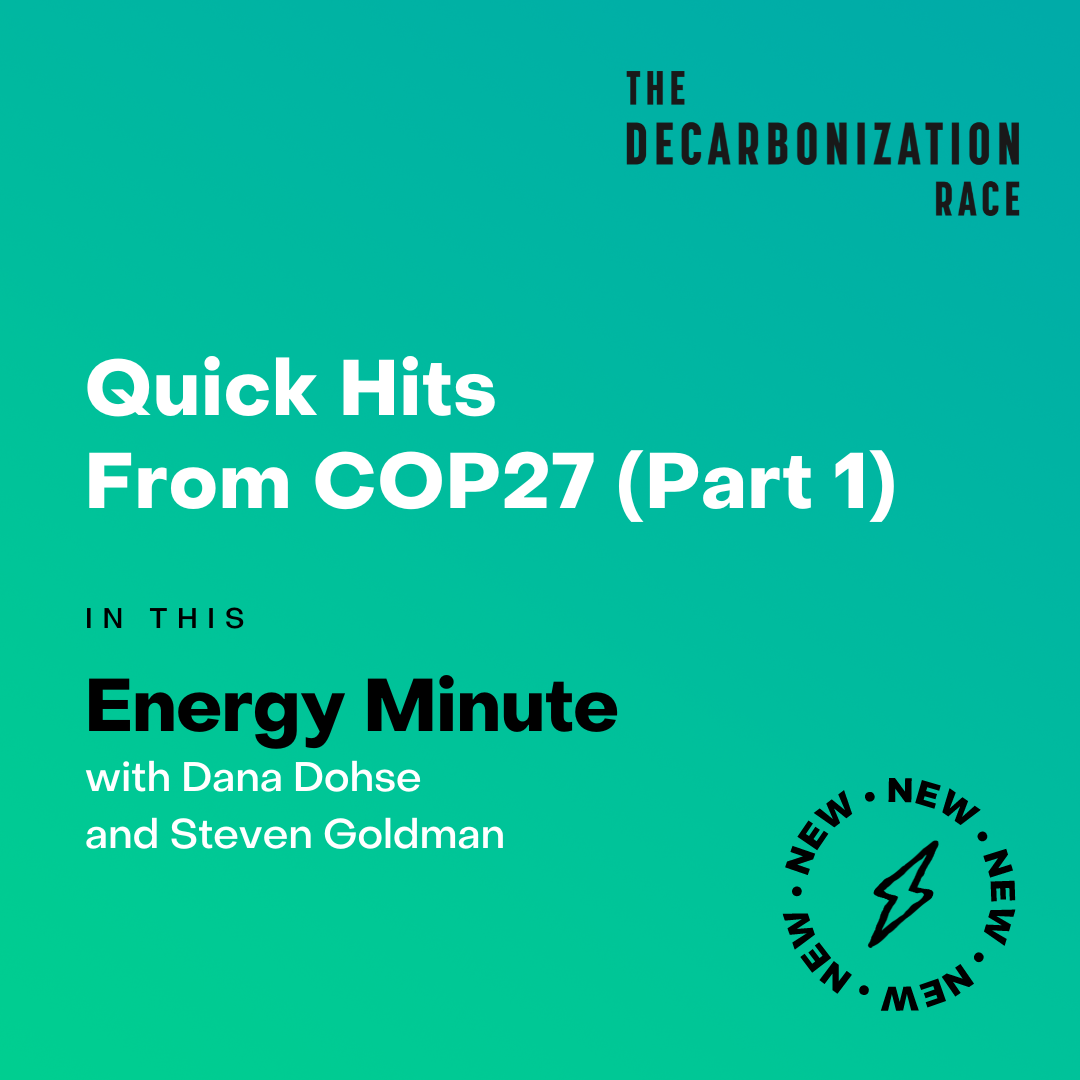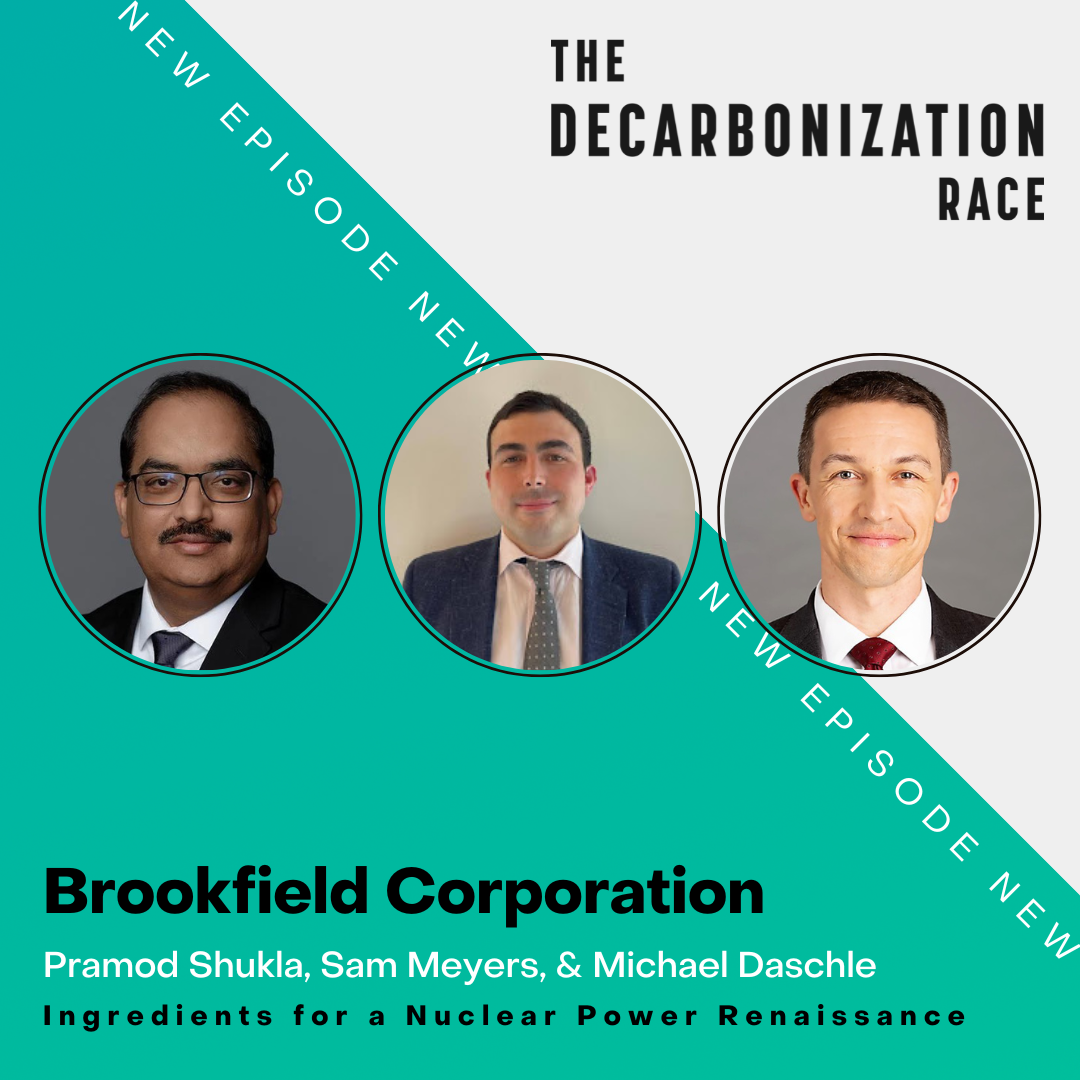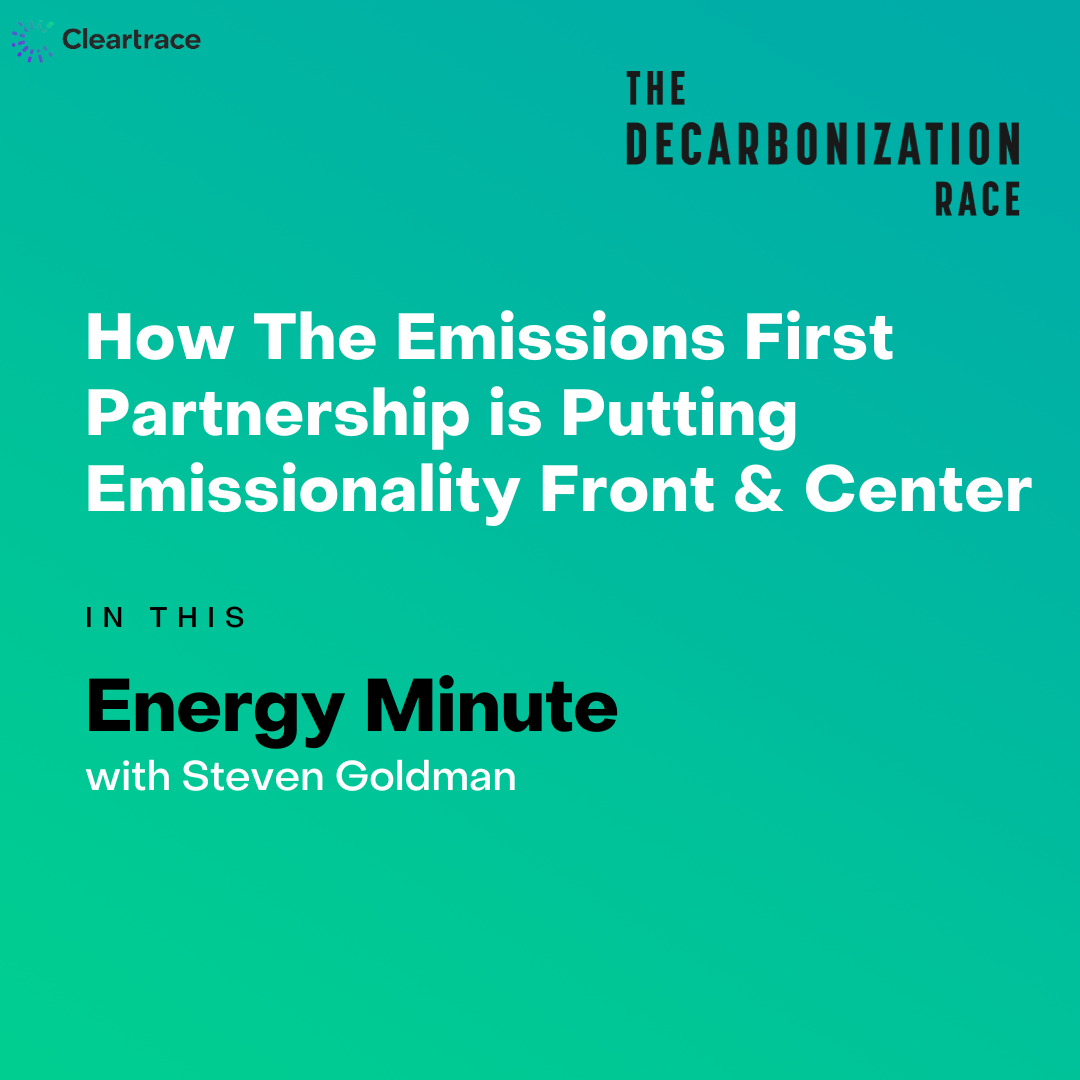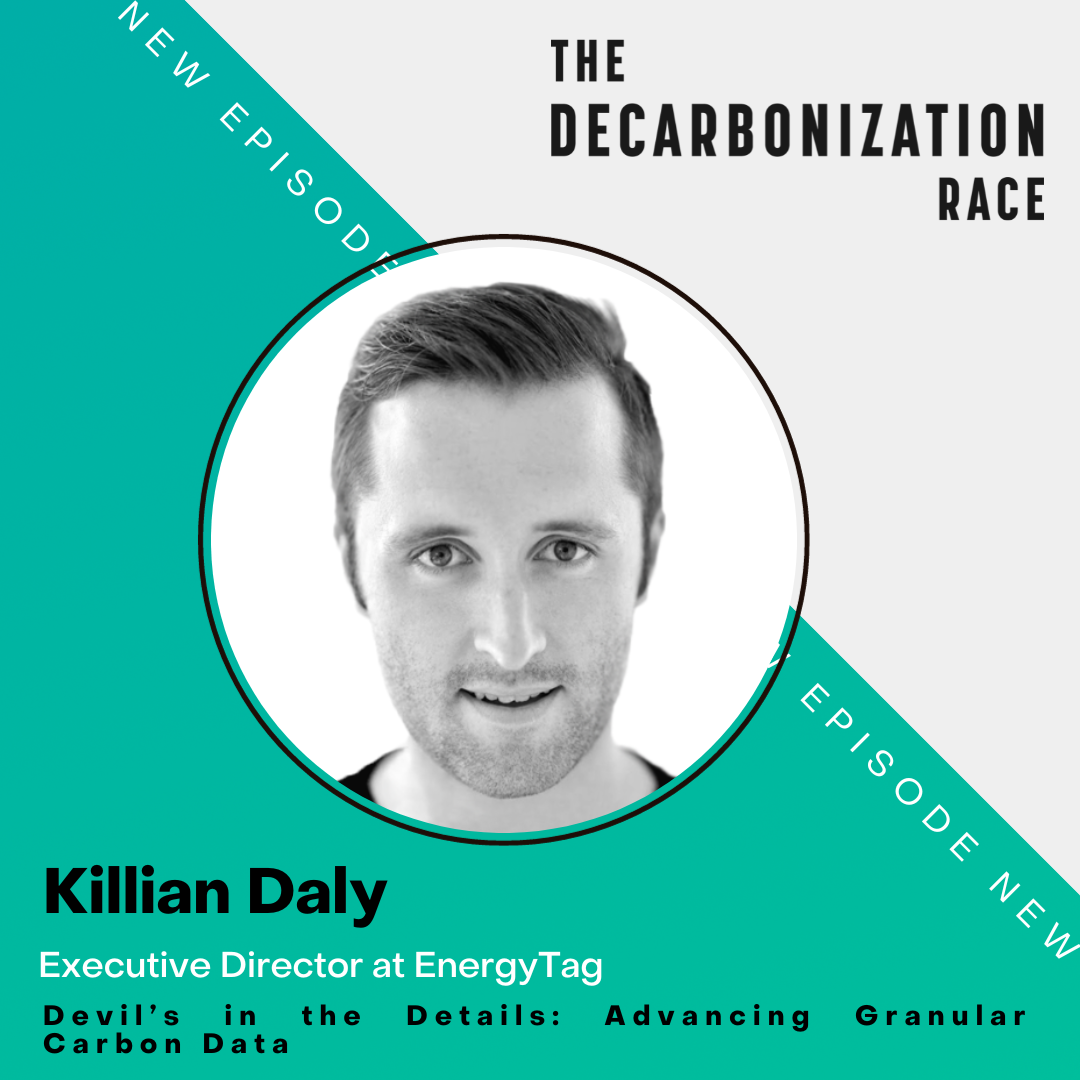Energy Minute: Quick Hits From COP27
As the UN COP27 meeting was winding down, Dana and Steven sat down to recap and discuss some of the highlights from the first half of the climate summit. The COP negotiation continues to be a key mechanism in trying to move the needle forward and keep countries accountable and collaborative as they work against climate change. On this Energy Minute, Dana and Steven touch on some of the pledges the United States has made, an exciting announcement out of Brazil, an update on the 1.5-degree target, and more. Stay tuned until the end for a preview of more exciting climate news that came out of the last half of the conference—in particular, a report that they’ll discuss in the next Energy Minute segment.

As the UN COP27 meeting was winding down, Dana and Steven sat down to recap and discuss some of the highlights from the first half of the climate summit. The COP negotiation continues to be a key mechanism in trying to move the needle forward and keep countries accountable and collaborative as they work against climate change.
On this Energy Minute, Dana and Steven touch on some of the pledges the United States has made, an exciting announcement out of Brazil, an update on the 1.5-degree target, and more. Stay tuned until the end for a preview of more exciting climate news that came out of the last half of the conference—in particular, a report that they’ll discuss in the next Energy Minute segment.
Resources
- How COP is pushing progress forward: https://www.bloomberg.com/news/articles/2022-11-15/you-can-t-tackle-climate-change-without-cop?srnd=green
- US Pledges from the Biden Administration: https://www.whitehouse.gov/briefing-room/statements-releases/2022/11/11/fact-sheet-president-biden-announces-new-initiatives-at-cop27-to-strengthen-u-s-leadership-in-tackling-climate-change/
- Brazil’s hard U-turn on climate policy: https://www.bloomberg.com/news/articles/2022-11-16/brazil-s-lula-offers-to-host-cop30-stresses-amazon-s-importance?srnd=green
- Keeping the 1.5-degree goal alive: https://news.un.org/en/story/2022/11/1130622
Key Takeaways
- While the Paris Agreement continues to be a factor in driving clean energy progress forward, currently only 29% of global electricity generation currently comes from renewables
- The Biden administration pledged to boost funds for adaptation and resilience among developing countries by $200 million, launched the Net Zero Governments Initiative (targeting net zero by 2050) with an 19 initial governments joining, and more
- Brazil’s president-elect Luiz Inácio Lula da Silva promised to reinstate deforestation institutions to crack down on deforestation and environmental crimes that were dismantled under the previous institution
Transcript
Dana Dohse: Welcome to this Week’s Energy Minute, brought to you by Cleartrace. I’m Dana Dohse.
Steven Goldman: And I’m Steve Goldman.
Dana Dohse: Martin Weinstein of the Open Earth Foundation joined the show a couple weeks ago to give us a preview of the United Nations Climate Change Summit. On this Energy Minute, we’re going to take a quick look at some of the early takeaways from COP 27 Summit.
Steven Goldman: I’ll jump in and start. What we’ve been reading from the recap so far, has been that it’s been a challenging one. There’s been some questioning whether the 1.5 degree target is still what countries should be aiming for, even though there was a lot of agreement on that at the Glasgow Summit last year, and that’s being contradicted the same time by the group of 20 meeting that just happened in Bali, in which they were endorsing the 1.5 degree target. So there’s still some disagreement from getting to another firm set of commitments spinning out of this particular summit. On the plus side, it seems like there’s a lot of action happening.
Dana Dohse: Absolutely. I mean, I think we can’t lose sight of how critical the role COP is playing in here. And there’s a really interesting article from Bloomberg we can link up in the show notes that’s showing this. And basically they’re saying, you can’t tackle climate change without COP. COP is really an interesting consensus driven meeting, meaning every country has the ability to sync the outcome of any of these discussions. And so it’s really forced a more delicate balance of negotiation in order to really make progress. There’s really nothing else like it out there.
Steven Goldman: Absolutely, and there’s also, everyone’s making very large scale commitments around funding for resilience and adaptation around what can a country set as a target, but then have to get corporations operating within their borders or operating multinational to help meet those. So it’s a complex web of challenges that it’s facing across sectors, across companies, countries, and jurisdictions.
Dana Dohse: I’ve also seen a lot of people calling this the implementation COP. I think that’s kind of been a key theme. One thing that really stood out to me was taking that IPCC one and a half degree celsius target and starting to break that down. Say, okay, that actually didn’t specify what does a company need to do? What does a country need to do in order to hit that? So there’s really starting to break that down and say, oh, that means net zero by 2050. It means a 45% reduction by 2030.
Steven Goldman: Also, it’s making the commitments to help countries get through the difficulties that climate change is generating in the meantime. So it’s commitments around resilience, it’s commitments around adaptation. It’s what they’re calling loss and damage, where countries are in particular hesitant to sign up for those commitments, because of essentially admitting what damage they have contributed through their emissions. But it’s a global responsibility. It’s what they call differentiated responsibility based on country’s histories and how they’ve industrialized.
Dana Dohse: But just the fact that they’re talking about this idea of loss and damages and responsibility is actually pretty impressive this year. It’s really a big deal and a big step forward for the whole process.
Steven Goldman: I was looking hard at the recent announcements by the Biden administration, and there was a lot to talk about from that regard. They’re committing an additional 200 million, particularly in Africa, particularly for Pacific small island developing states, and then they’re looking hard at the issue of methane emissions from the oil and gas sector. Methane in particular has a much higher global warming potential than CO2. And so as a way of addressing carbon emissions faster, cutting methane emissions from the oil and gas sector has taken on a much higher priority on the global stage. And so the Biden administration has been pushing additional efforts after some initial limitations that were put in place during the Obama administration, the Biden administration’s trying to follow up on that now, strengthening proposed rules that will cut methane and other air pollutants from the oil and natural gas sectors, and then working with countries like Canada, Mexico, and Nigeria to advance similar efforts. So it’s really an amazing step forward on that.
Dana Dohse: Right, and there’s some really amazing international news coming out of COP as well. One that really stands out to me is the U-turn that’s happening with Brazil. After defeating Jair Bolsonaro, Lula was re-elected into office, and this is his first international trip since his election. So even that in and of itself speaks volumes about kind of his intentions.
Steven Goldman: He described it as a U-turn, I think, right?
Dana Dohse: Yeah, I think so. And I love that. I mean, what’s not to love about him promising to, in some of the deforestation that has been accelerating, it’s really hard to track some of this, because so much of the country is so isolated and he’s going to go back and reinstate some of the institutions that track deforestation that were dismantled under his predecessor. This is a really big deal coming out of COP, and I think there’s just a lot of positive momentum.
Steven Goldman: There was also, I think John Kerry or whoever the delegate was at COP 27, had announced there’s also an initiative the US is going to support Egypt in deploying new wind and solar power, I think about 10 gigawatts, at the same time as they’re trying to decommission five gigawatts of inefficient gas generation. So it’s not just the large scale financial commitments that need to get worked out as they trickle down to the individual countries, but it’s also very specific country based efforts that are happening as well.
Dana Dohse: The other one I love seeing was US and Japan are partnering to mobilize, I think it’s about 20 billion to help Indonesia move away from coal. Just for context, the reduction that they’re going to do is larger than Britain’s annual power sector emissions. So Indonesia has a really big amount of emissions from their coal, and this is one of the biggest climate finance transactions or partnerships really ever. According to the US Treasury official, we spoke about this, it’s eliminating 300 million tons of GHD emissions through 2030 and over six billion tons through 2060.
Steven Goldman: Our viewers wouldn’t know this, but I was living in Australia for about three years, and I know there’s been a massive push in Australia to accelerate coal retirements. And so I feel like it’s taken for granted in developed countries that those kinds of accelerations can happen. But I think in developing nations and in particular, one that’s as coal reliant as Indonesia, it’s a remarkable target to set. And the fact they’re trying to do it as quickly as they are, is tremendous.
Dana Dohse: It’s just been such an exciting couple weeks of climate news and excited to see how the rest of the conference wraps up as we’re recording this kind of mid COP.
Steven Goldman: I mean, I know there’s a lot of discussions around corporate commitments, but we haven’t seen as many big bold announcements coming out. I think there’s more scrutiny coming down the line. I think there’s a lot of discussion around the role, frankly, of finer tuning corporate procurements around, whether it’s getting down to hourly levels of procurement and time and load matching of power. But there’s definitely a lot of discussion on how that implementation has to happen among corporates and non-state actors in, addition to the countries that are making the pledges.
Dana Dohse: Absolutely, and it really highlights the importance of data, the importance of understanding the full impact, and also making sure that you’re setting targets that are science based and aligned with the Paris Climate Award. So it’s less about those flashy promises and more about what have you actually done?
Steven Goldman: I think at the international level, there’s been so much skepticism and noticing where greenwashing is taking place, that it doesn’t serve corporations to set goals they can’t meet, and it doesn’t serve them to try to paper over if they don’t have the data or they don’t have the accomplishments to support what they’re claiming. One last thing. The International Energy Agency released a really detailed look at where corporate clean energy procurements are going in partnership with Google, and digging into the range of how it can move from any or monthly procurement topics. We’ve been covering a lot on the podcast down to the hourly level. Spoiler alert, there’s even a set of parties in Europe who are even talking about 15 minute level visibility, which is even more finely tuned than I think most proponents are suggesting right now on the global stage. So there’s a lot to unpack there.
Dana Dohse: I think that’s a topic for a future Energy Minute.
Steven Goldman: Yeah, definitely.
Dana Dohse: Thanks for joining us for this week’s Energy Minute. For more of the latest news in sustainability and decarbonization, visit cleartrace.io.










